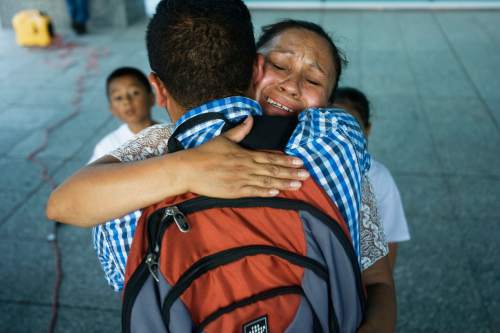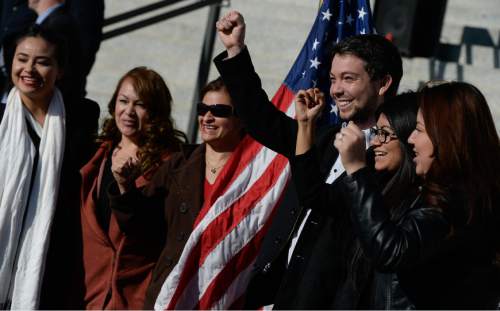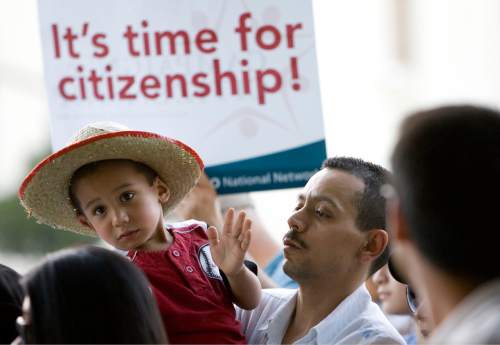This is an archived article that was published on sltrib.com in 2014, and information in the article may be outdated. It is provided only for personal research purposes and may not be reprinted.
A higher percentage of undocumented immigrants in Utah could benefit from President Barack Obama's new immigration executive orders than in any other state, a new study says.
The Migration Policy Institute estimates that 55 percent of the undocumented population in Utah could be shielded from deportation through his action, or about 48,000 people.
The next highest are Oregon, 52 percent; Texas, 51 percent; and California and Illinois, both 50 percent.
Pam Perlich, senior research economist at the University of Utah, says the reason for Utah's top ranking may be that its economy suffered less in the recession than most states, so more undocumented immigrants remained here instead of returning home — and built families.
Those families are key because Obama's action especially benefits the undocumented who have close family members who are U.S. citizens or legal permanent residents, have been in America for at least five years, and have clean criminal records.
People in that situation will be allowed to pay fees, register and then remain legally for at least three years — and they'll be able to work legally.
"The really big surge for immigration came in Utah in the 1990s. Although people continued to come in the 2000s, it was in smaller numbers and at a slower rate," Perlich said.
She adds that U.S. census data has shown that most of the undocumented immigrants in that time did not have children — and were mainly young people seeking work in big projects here at the time ranging from gearing up for the 2002 Olympics to rebuilding Interstate 15, followed by a housing boom.
"Those young men eventually brought other people with them, and many of them established families here," she said. Their children born here are U.S. citizens, which may now benefit their families under Obama's orders.
When the recession hit, some states saw a decrease in their undocumented population as jobs became scarce — but numbers in Utah held constant probably because of better sustained employment here, Perlich said.
"We haven't lost a lot of undocumented immigrants, as other states have," Perlich said. "We lost a lot of jobs, because we didn't get hit by the recession quite as badly as other places."
She added, "People were able to hold on, and had been here long enough to establish networks of support."
Also, Perlich said some say the undocumented here may have been more likely to stay because local churches, including the LDS Church, pushed "a message of compassion, acceptance and support."
The Migration Policy Institute figures Utah has 88,000 undocumented immigrants, which is lower than many other estimates. The Pew Hispanic Trends Project, for example, figures Utah has 100,000 such immigrants.
The study estimated that 36,000 people in Utah would qualify for the program to allow family members of legal residents to escape deportation, and another 12,000 would qualify for expansion of deferred action against "dreamers," people brought as young children into the country.
The institute estimates that 34,000 out of 80,000 undocumented adults in Utah reside with at least one child who is a U.S. citizen. It estimates that 5,000 undocumented adults here are married to U.S. citizens, and another 5,000 are married to legal permanent residents.







